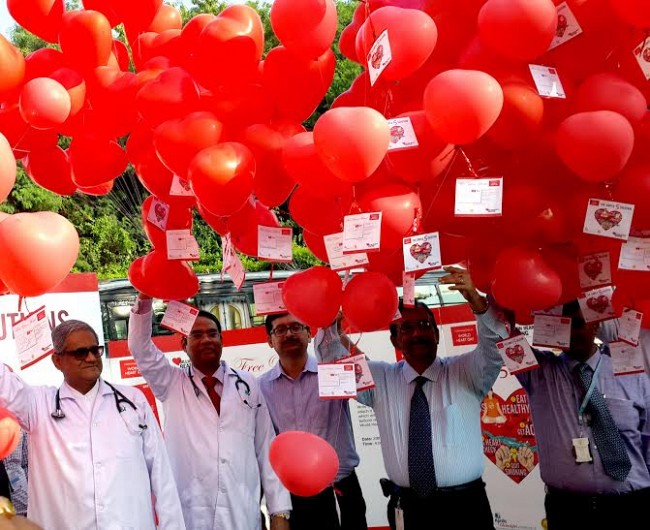
Research supports intelligence-led heart disease prevention over systematic health checks
The findings, published in the British Journal of General Practice, present a strategy that could address the under-treatment of individuals at highest risk of heart disease or stroke.
Information in electronic medical records was used to target patients at highest risk of heart disease and invite them for a check-up.
The authors believe that it presents clear evidence that using electronic medical records to target patients for health checks is a better solution than the current programme of NHS Health Checks for all.
Official policy of Health Checks for all adults has been the subject of high profile reviews, which highlight their inability to identify enough high risk eligible patients or to start enough preventive drugs in patients who need them.
This study took place in 26 general practices from urban areas in the West Midlands region of the UK between February 2009 and August 2012.
Untreated high-risk patients between the ages of 35-74 were identified from their GP’s electronic medical records.
A high-risk patient community is defined by at least 20 in 100 being expected to get heart disease within the next ten years. Most of the identified group were middle-aged males, and around half were smokers.
A dedicated nurse, resourced and managed separately from the primary care team, then invited them for a check-up. The study compared the number of patients started on preventive drugs when the nurse was actively inviting patients to the number started in a similar time period before the nurse arrived.
Of the 2926 high-risk patients identified when the nurse was working in the practice, 19.7% were started on treatment. Before the nurse arrived there were 2969 high-risk patients, similar in age and sex, but only 10.8% were started on treatment.
Professor Tom Marshall, from the University of Birmingham, explained: “We know that the treatments work. The problem has been identifying the highest-risk patients who benefit most and offering them blood pressure treatment or statins.”
Official UK government policy is to offer NHS Health Checks to everybody aged over 40 years.
Professor Marshall added: “Health Checks may be wasteful because it does not prioritise those most likely to benefit. We now have strong evidence to support the idea of targeted health checks. It is a bit like intelligence-led policing, putting our staff where they are most likely to be useful.”
In a pilot study for the research, a group of general practices were provided with a list of high-risk patients, but not one was invited for assessment, suggesting that simply providing a list of high-risk patients to general practice would not be enough.
Professor Marshall said: “The pilot study highlighted that there needs to be someone to coordinate inviting and assessing patients. Aside from that, we don’t need extra resources. Every GP has electronic patient records and can generate a list of high-risk patients. We can unburden the health service if we stop inviting low-risk patients for Health Checks.”
Support Our Journalism
We cannot do without you.. your contribution supports unbiased journalism
IBNS is not driven by any ism- not wokeism, not racism, not skewed secularism, not hyper right-wing or left liberal ideals, nor by any hardline religious beliefs or hyper nationalism. We want to serve you good old objective news, as they are. We do not judge or preach. We let people decide for themselves. We only try to present factual and well-sourced news.







